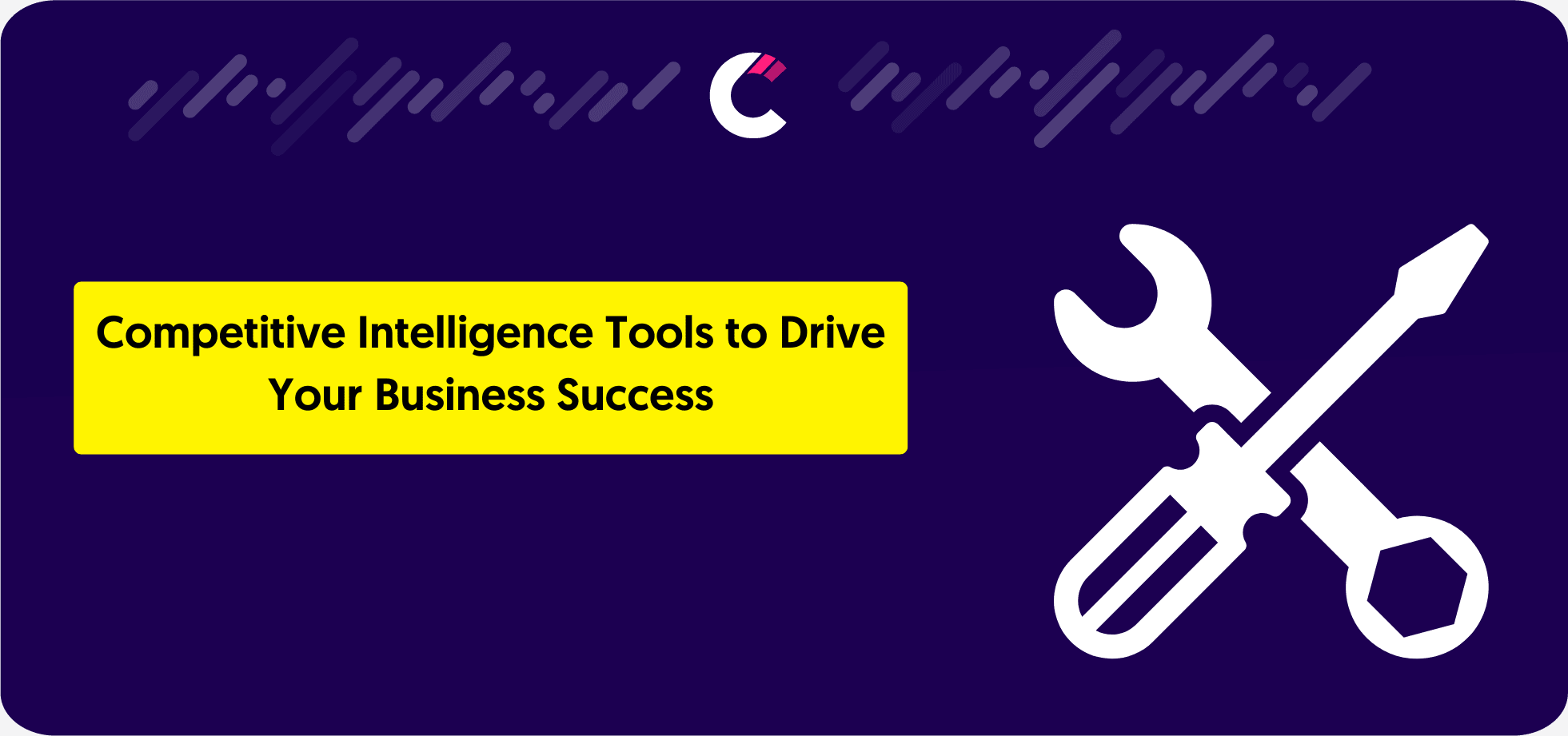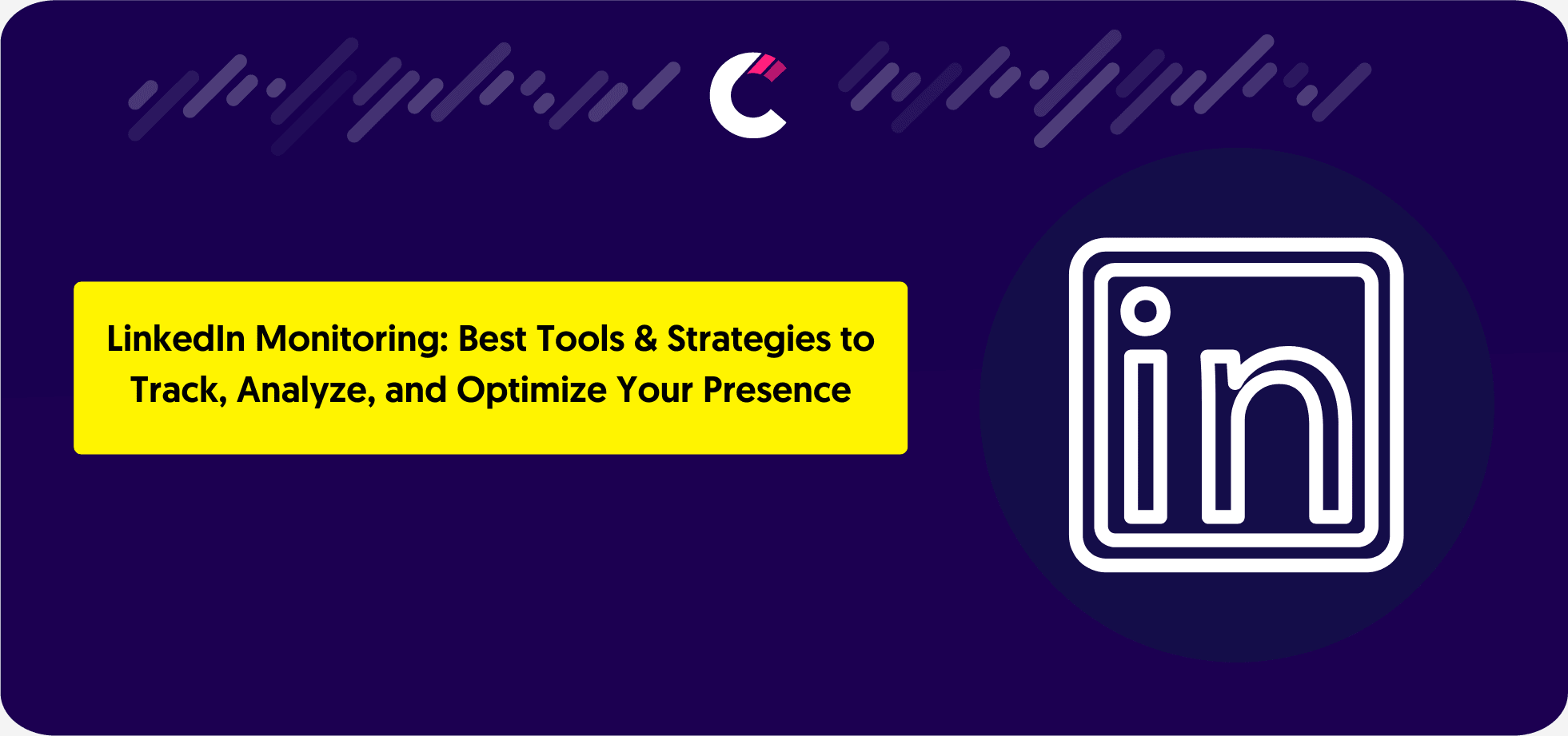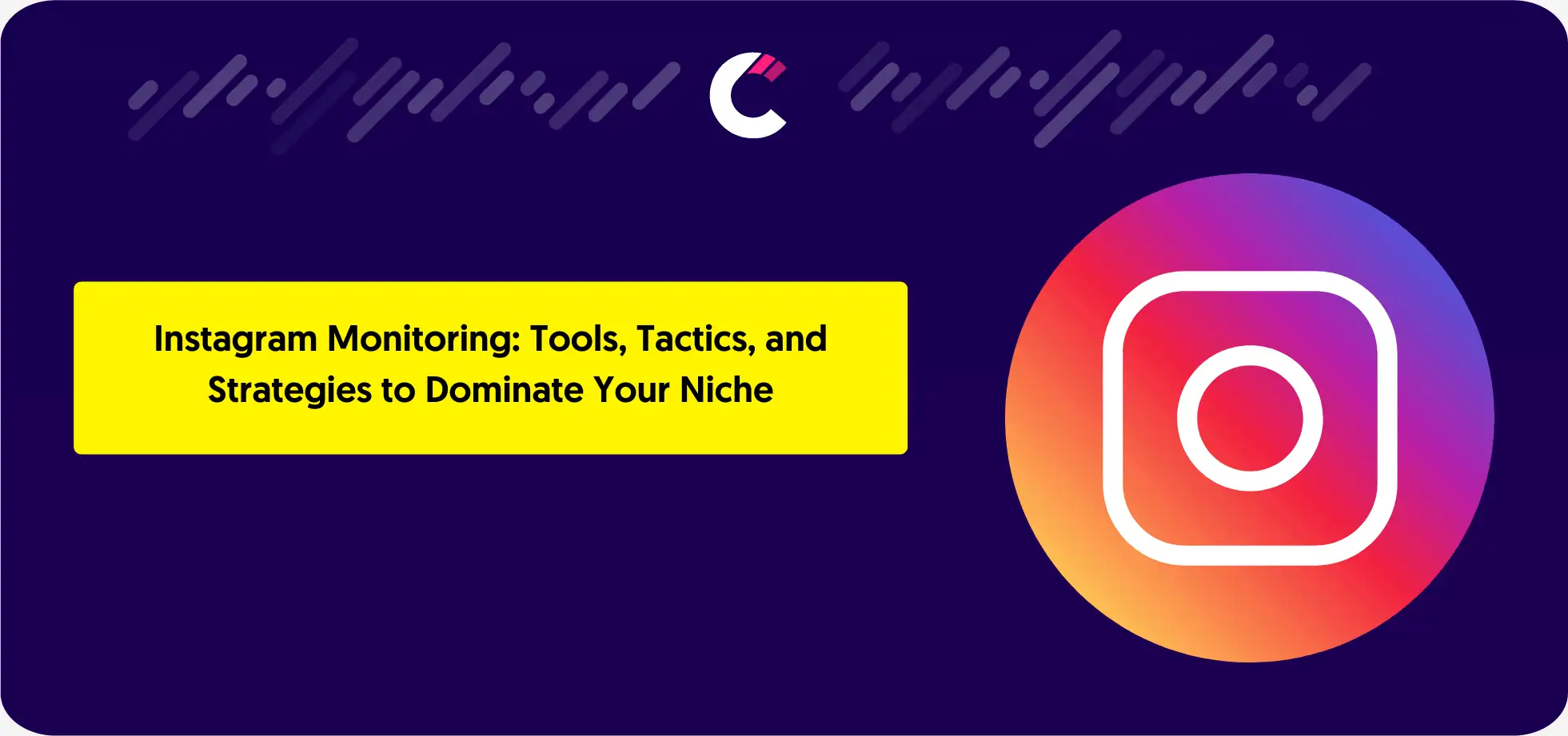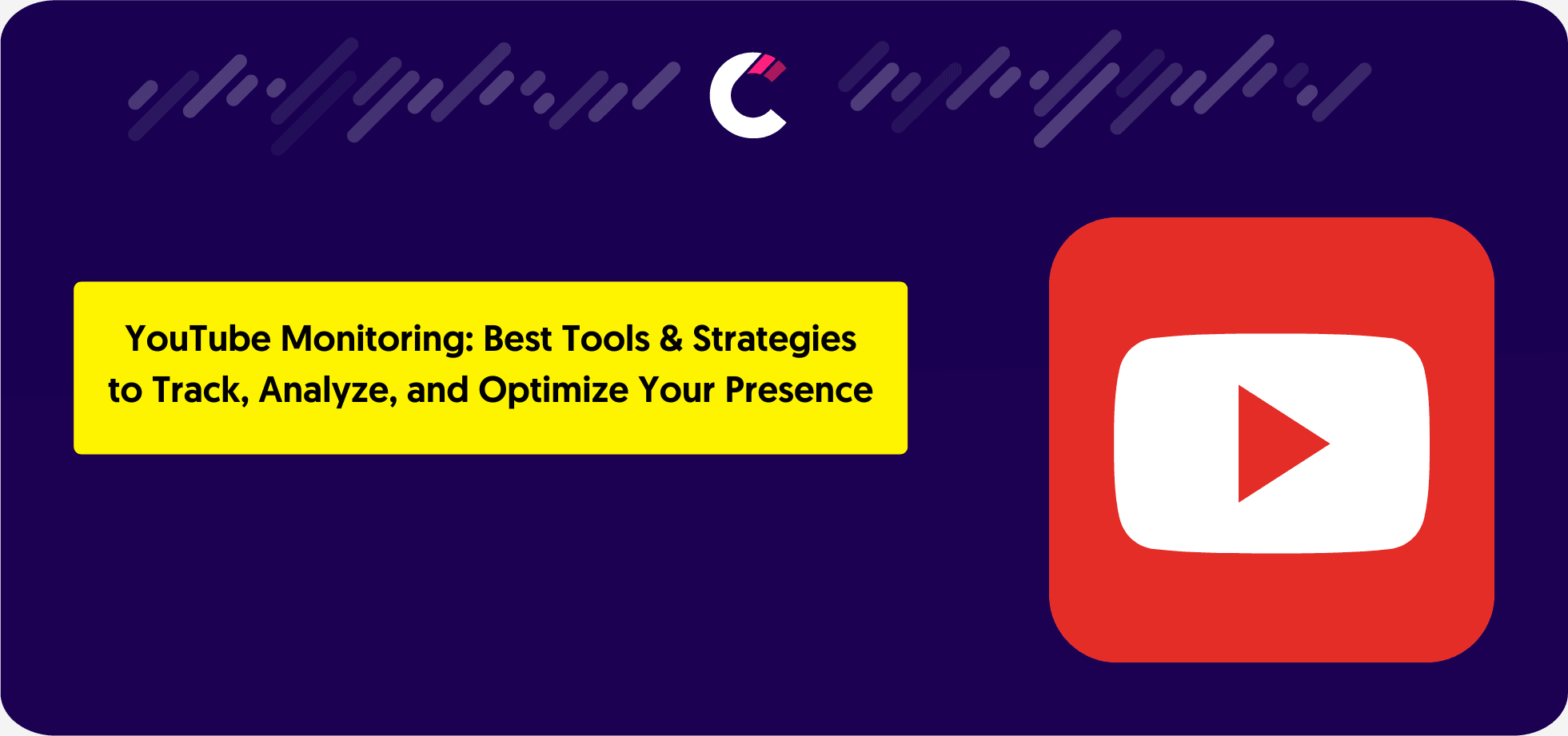Introduction to Competitive Intelligence Tools
What is Competitive Intelligence?
Competitive intelligence (CI) involves gathering and analyzing data on competitors, customers, and market trends to guide business decisions. CI allows businesses to collect structured insights on competitor actions, customer needs, and industry shifts, helping them make informed choices rather than relying on assumptions.
Why Competitive Intelligence Tools are Essential for Modern Businesses
CI tools are crucial for modern businesses as they streamline the process of gathering and analyzing market data. These tools allow companies to respond quickly to changes in the market, helping them stay competitive and spot new opportunities. With CI tools, businesses can refine their strategies and improve marketing reporting, basing decisions on real-time insights.
How Competitive Intelligence Tools Support Growth, Strategy, and Market Position
Beyond supporting growth, CI tools help businesses strengthen their market position. They enable companies to track competitor moves, understand customer sentiment, and stay updated on industry trends. These insights allow businesses to anticipate changes, respond to potential threats, and make data-backed decisions that enhance overall strategy.
Key Benefits of Competitive Intelligence Tools
Identify Market Gaps and Opportunities
Competitive intelligence tools help businesses discover gaps in the market that competitors may overlook. By analyzing competitor performance, customer needs, and emerging trends, CI tools provide insights into untapped opportunities. This information allows companies to create targeted marketing strategies and develop products that meet unfulfilled customer demands, leading to stronger market positioning and more effective marketing reporting.
Respond Swiftly to Market Threats
Competitive intelligence tools enable companies to monitor competitors and identify potential threats in real time. Whether it’s a new product launch, a pricing change, or an emerging competitor, CI tools help businesses respond quickly to protect their market share. This rapid response ability gives companies a competitive advantage, allowing them to adapt their strategies promptly and minimize potential risks.
Enhance Strategic Decision-Making
Data-driven decision-making is key to successful business strategy. CI tools provide accurate, up-to-date information that helps businesses choose the best paths forward. By using insights from these tools, companies can align their strategies with current market realities, reduce risks, and improve the effectiveness of their marketing reporting and long-term planning.
Monitor Industry Trends and Competitor Moves
With CI tools, businesses can track industry trends and competitor actions continuously. This tracking capability gives businesses insight into changing customer preferences, emerging technologies, and shifts within the competitive landscape. These insights are essential for adjusting strategies, keeping up with market demands, and ensuring that marketing efforts align with industry trends.
Understand Customer Sentiment and Brand Perception
Competitive intelligence tools also help businesses monitor customer sentiment by gathering feedback from various sources like social media, reviews, and forums. By understanding how customers perceive their brand versus competitors, companies can fine-tune their messaging and improve their customer relations. This customer sentiment data contributes to more accurate, insightful marketing reporting.
Drive Data-Driven Insights for Business Growth
Finally, CI tools allow businesses to centralize their data on market trends, competitor activity, and customer preferences, providing a comprehensive view of the competitive landscape. These insights help companies identify growth opportunities, refine strategies, and focus efforts on high-potential areas. Data-driven decisions from CI tools lead to stronger marketing reports and sustained business growth.
Top Competitive Intelligence Tools
|
Tool |
Key Features |
Pros |
Cons |
Pricing (Starting From) |
|
Email & Social Media Monitoring, Website & SEO Tracking, Keywords & Ads, Reviews & AI Insights |
Customizable alerts, Slack integration, accessible reporting |
Limited integrations |
||
|
SEMRush |
Keyword & SEO Analysis, Site Audit, Social Media Analysis, PPC Ad Research |
In-depth SEO & content tools, user-friendly interface |
High cost, learning curve |
$119.95/month |
|
Similarweb |
Website Traffic Analysis, Audience Demographics, Industry Benchmarks, App & Keyword Insights |
Detailed traffic analysis, strong benchmarks |
Higher price, limited mobile data on low plans |
$125/month (annual billing) |
|
Crayon |
Competitor Tracking, Customizable Dashboards, Real-Time Alerts, In-Depth Reporting |
Customizable, real-time tracking |
Complex interface for beginners, high cost |
Custom pricing |
|
Owler |
Company Profiles, News Updates, Custom Alerts, Competitor Comparison Tool |
User-friendly, unique crowd-sourced insights |
Limited data depth on small companies |
$39/month |
|
Content Discovery, Social Media Analytics, Influencer Identification, Competitor Content Alerts |
Simple, excellent for content discovery |
Limited functionality outside content/social |
$159/month (annual billing) |
|
|
Social Listening, Visual Analytics, Custom Dashboards, Crisis Management Alerts |
Advanced sentiment analysis, strong visual analytics |
High price, complex interface |
Custom pricing |
|
|
SpyFu |
Keyword Research, PPC Ad Analysis, Backlink Analysis, SERP Tracking |
Strong SEO and PPC insights, user-friendly |
Limited beyond SEO/PPC |
$39/month |
|
Contify |
Competitive Tracking, Custom Dashboards, AI-Powered Insights, Industry Analysis |
Customizable, AI-driven insights |
Complex for small businesses, high cost |
Custom pricing |
|
Klue |
Competitive Battlecards, Real-Time Updates, Content Curation, Collaboration Tools |
Effective for sales enablement, easy collaboration |
Limited analytics outside competitive insights |
Custom pricing |
|
AlphaSense |
Advanced Search, Real-Time Market Monitoring, Sentiment Analysis, Collaboration Tools |
Powerful AI-driven search, comprehensive document coverage |
High cost, focused on finance/market data |
Custom pricing |
|
Glassdoor |
Employee Reviews, Salary Data, CEO Ratings, Interview Insights |
Easy access to employee insights, salary benchmarks |
Limited scope outside employee sentiment |
Free/basic; premium pricing |
1. Competitors App (Best Value for Money)
Competitors App is a versatile and affordable competitive intelligence tool that tracks a wide range of competitor activities to help businesses stay informed and strategic. Designed for marketers and business owners, Competitors App monitors everything from social media updates to SEO changes, providing insights that support data-driven decisions and effective marketing reporting.
- Key Features:
- Trial Emails & Newsletters: Track competitors’ email marketing efforts by collecting every promotional email, newsletter, or onboarding email they send. This feature lets businesses analyze how competitors educate and convert their leads.
- Blog & Social Media Monitoring: Stay updated on competitors’ blog posts and social media activities across platforms like Facebook, Twitter, LinkedIn, Instagram, and TikTok. This insight reveals which content and messaging perform best.
- Website Changes & SEO Tracking: Detects any updates or changes to competitors’ websites, including new product pages, pricing changes, case studies, and other valuable content. SEO monitoring also tracks keyword rankings, helping businesses gauge their standing against competitors.
- Keywords & Ads Tracking: Competitors App tracks search engine keyword rankings and online ads, including Google, YouTube, PPC, and social media ads, allowing users to monitor competitors’ ad spend and keyword strategies.
- Reviews & AI Insights: Monitors reviews from over 100 sites, using AI to summarize customer sentiment and identify competitive positioning. This data can help sales teams create targeted strategies.
- Traffic Analysis: Tracks competitor website traffic and compares it to the user’s site, offering insights into seasonal changes and growth trends.
- Social & PR Mentions: Monitors social media mentions and public relations coverage, providing insights into customer sentiment and competitor reputation on platforms like Instagram, YouTube, and LinkedIn.
- Pros: Customizable alerts, Slack integration for real-time updates, and accessible reporting make Competitors App a practical choice for businesses of all sizes.
- Cons: Limited integrations with more advanced analytics tools may be a limitation for some users.
- Pricing: Starts at $19 per month, with flexible plans based on business needs, and includes a free 14-day trial for new users to test the platform.
- Why Competitors App Stands Out: Competitors App delivers a well-rounded view of competitors’ digital strategies, from content and social media to SEO and customer sentiment, making it ideal for businesses focused on in-depth, actionable insights.
Key Features of Competitors App
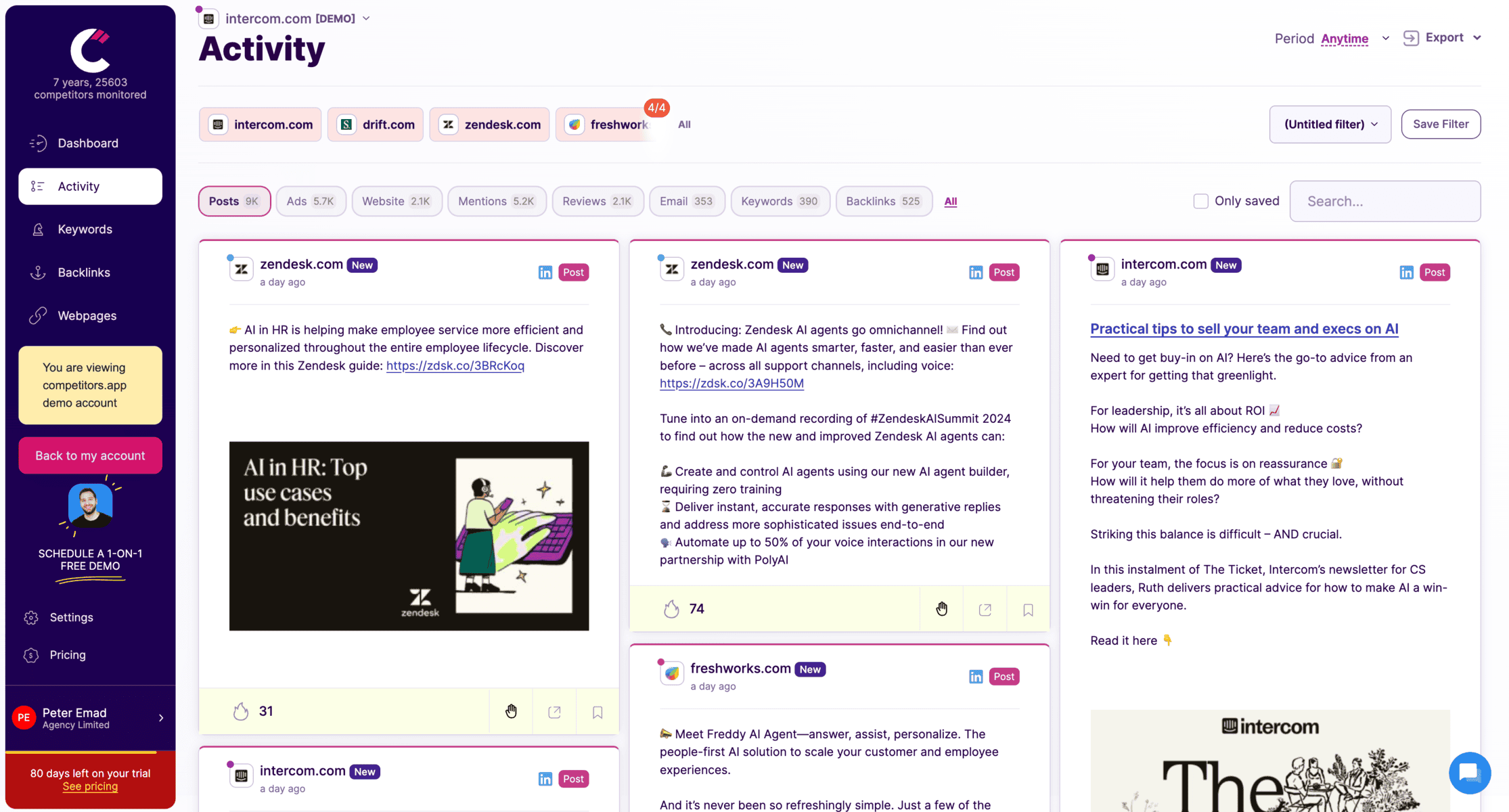
Tracks competitor social media updates across LinkedIn, Facebook, Twitter, and more.
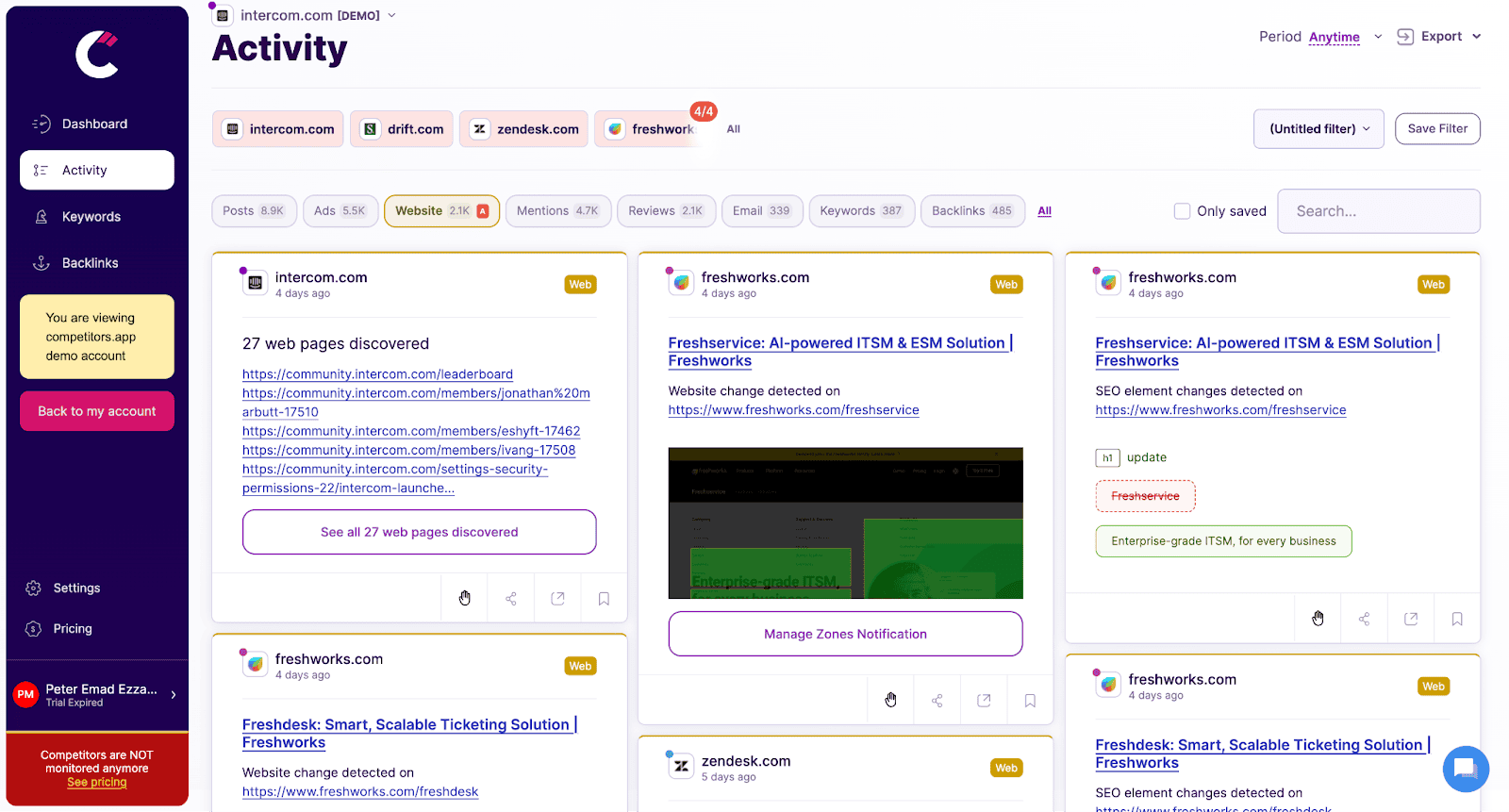
Monitors changes on competitors’ websites, such as product updates, pricing adjustments, and new messaging, providing instant alerts to help sales teams respond promptly.
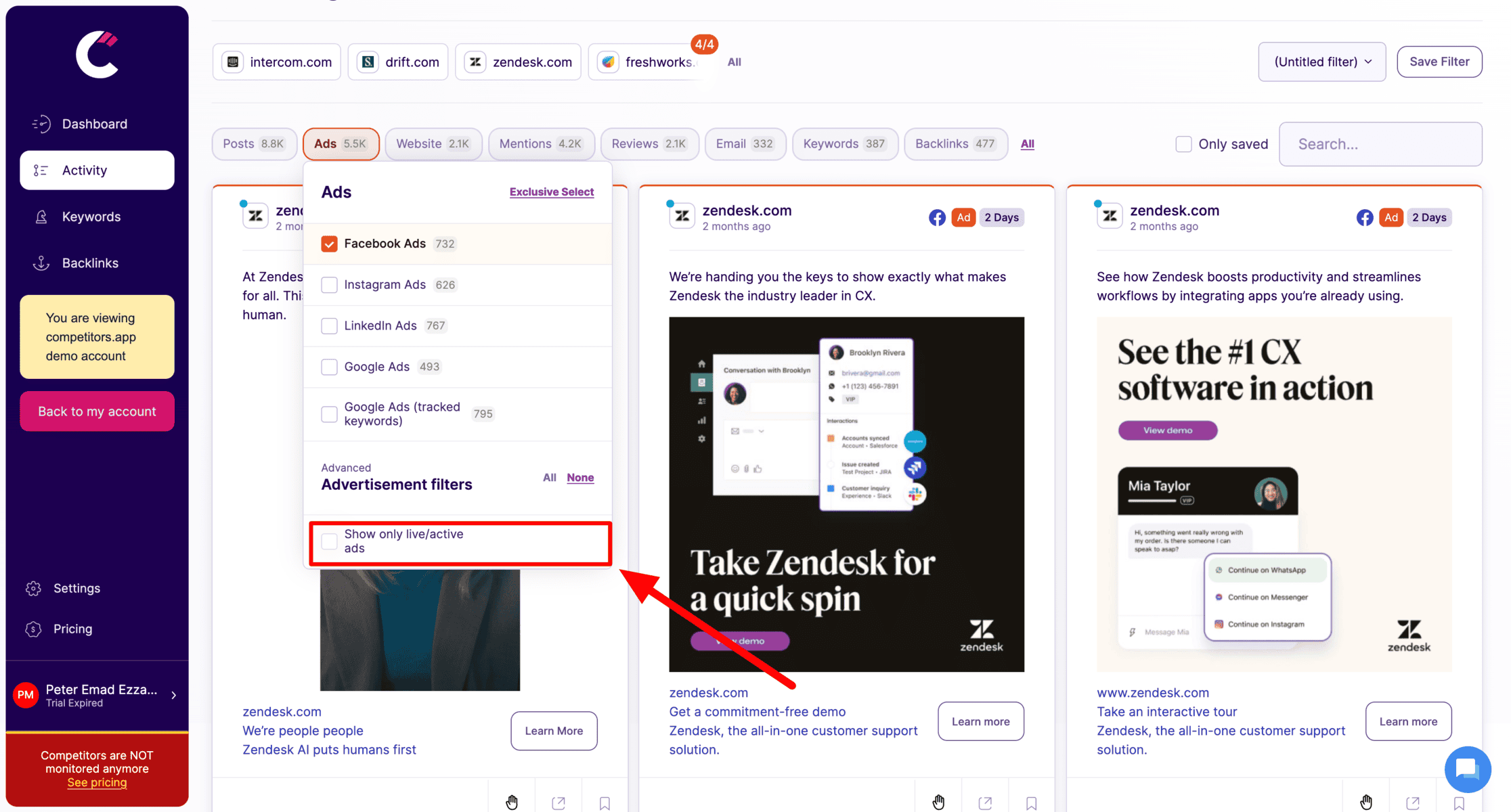
Tracks digital ad campaigns across platforms like Google Ads, Facebook, LinkedIn, and Instagram. It provides details on ad creatives, spending, and performance metrics, helping teams analyze successful ad strategies.

Analyzes competitors’ keyword strategies, organic rankings, and backlinks, allowing teams to refine their own SEO tactics and boost search visibility.
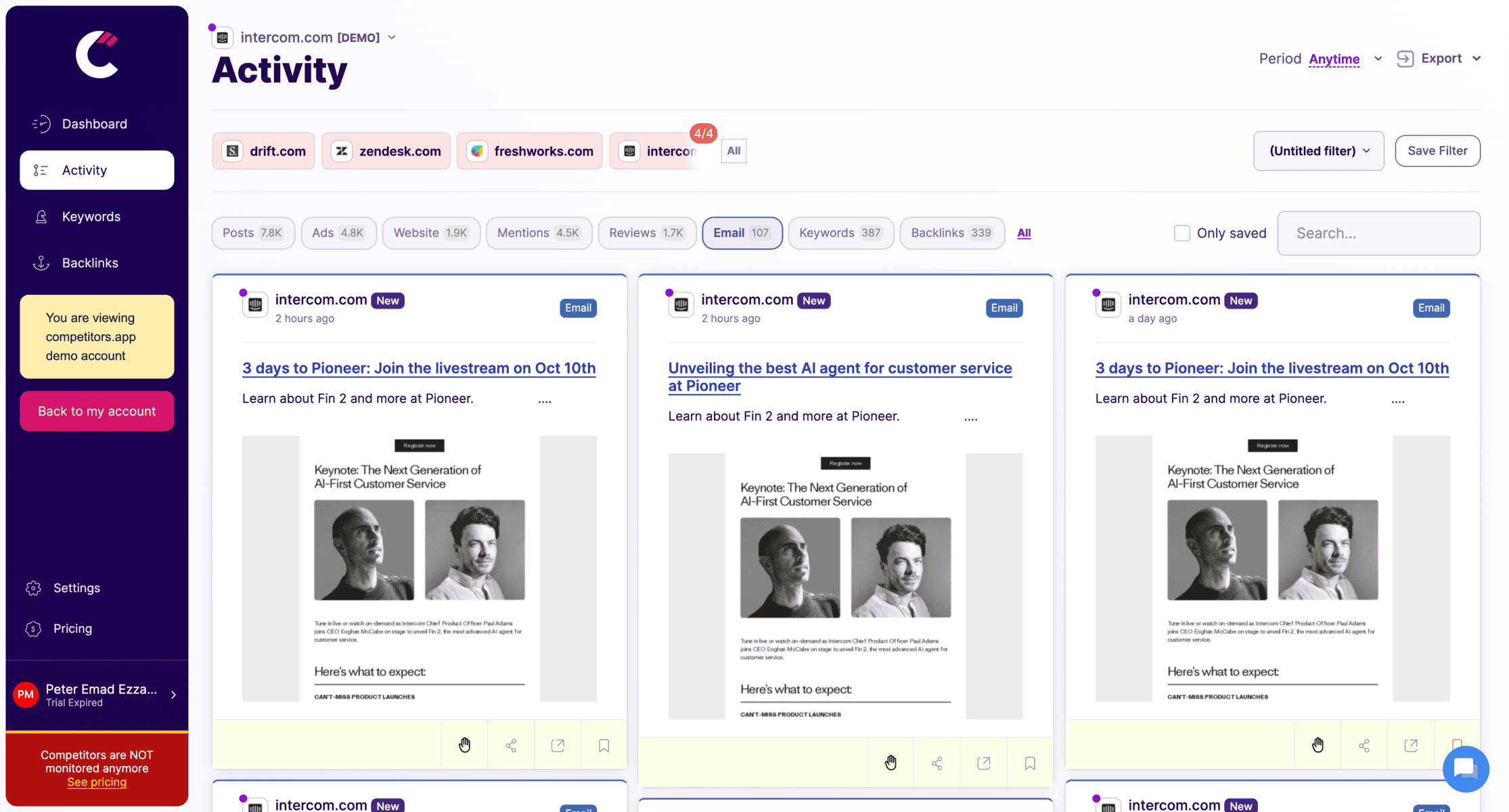
Tracks competitors’ email campaigns, including content, frequency, and engagement metrics, helping sales teams understand email tactics that drive engagement and conversions.
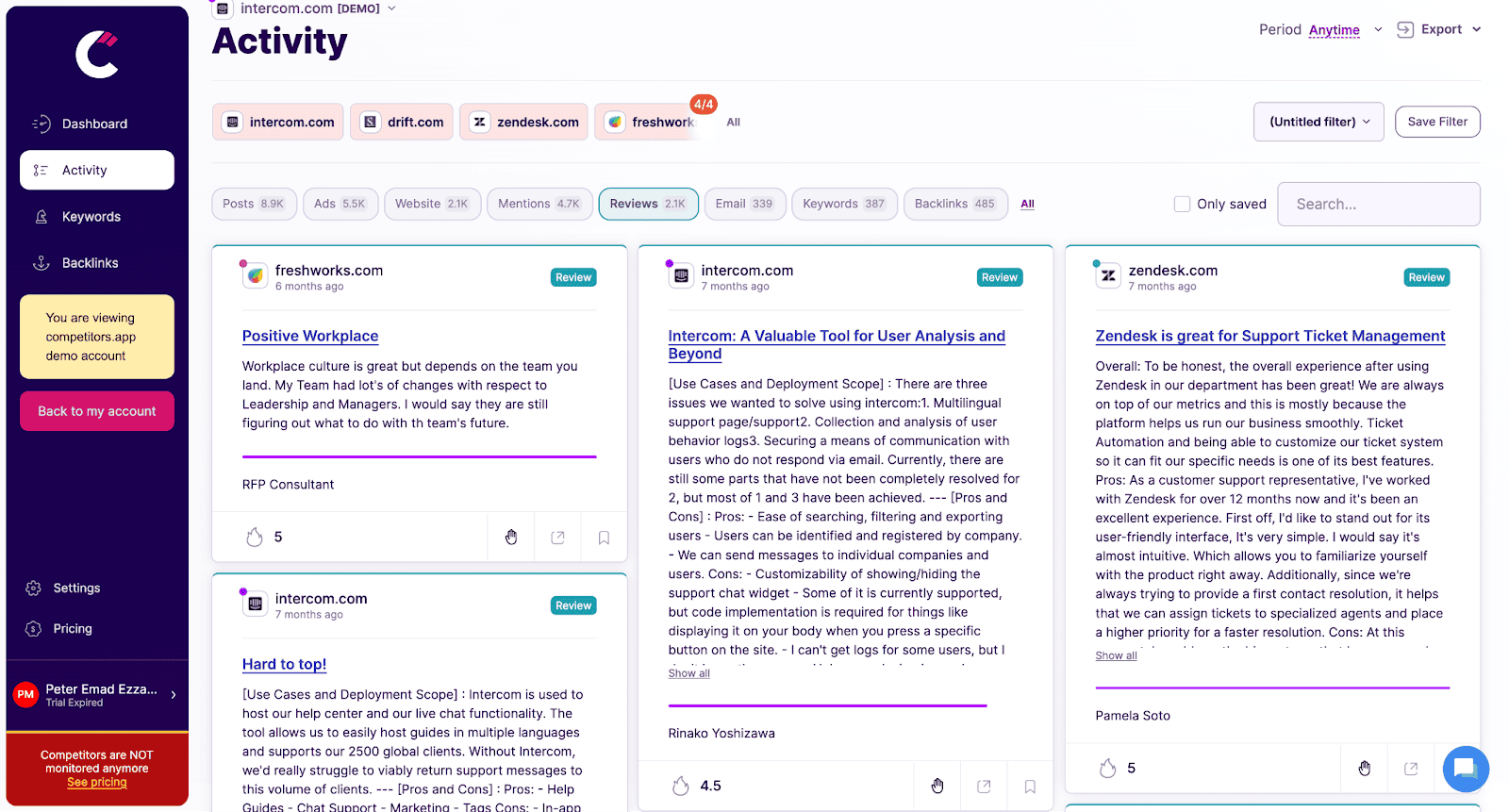
Analyzes customer reviews and ratings for competitors, providing insights into customer feedback, pain points, and product strengths, helping teams craft better sales pitches.
2. SEMRush
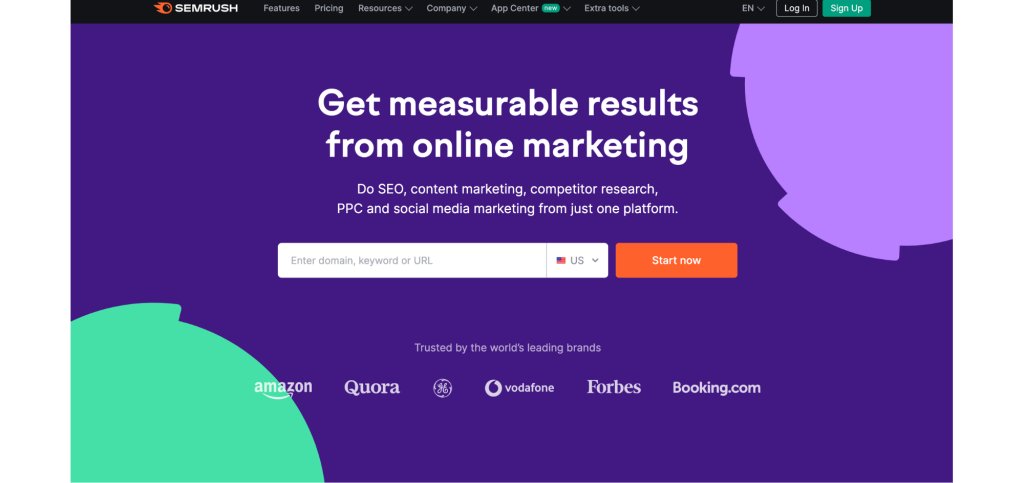
SEMRush is a popular competitive intelligence tool widely used by digital marketers and SEO professionals. It provides a comprehensive set of features designed to help businesses analyze competitor websites, keywords, and digital ad campaigns, making it ideal for companies focused on improving their online presence and search engine rankings.
- Key Features:
- Keyword Research & SEO Analysis: In-depth keyword research tools that track competitors’ rankings, allowing users to identify high-value keywords and content opportunities.
- Site Audit & Technical SEO: Conducts site audits to detect and resolve technical SEO issues, helping businesses optimize their websites for search engines.
- Social Media & Content Analysis: Analyzes social media performance and content effectiveness, revealing which posts and campaigns generate the most engagement.
- Advertising Research: Tracks competitor PPC (pay-per-click) campaigns and ad spending, offering insights into ad copy, keywords, and budget allocation.
- Pros: Comprehensive SEO and content analysis tools, detailed keyword tracking, and easy-to-navigate interface make SEMRush a powerful choice for marketers.
- Cons: Higher pricing may be a barrier for smaller businesses, and there can be a learning curve for users new to SEO or SEM tools.
- Pricing: Plans start at $119.95 per month, with multiple tiers offering more advanced features.
- Why SEMRush Stands Out: SEMRush is known for its extensive keyword and SEO tools, making it a top choice for companies that prioritize search engine rankings and digital marketing. Its ability to track competitor ad strategies and organic keywords provides valuable insights for data-driven marketing strategies.
3. Similarweb
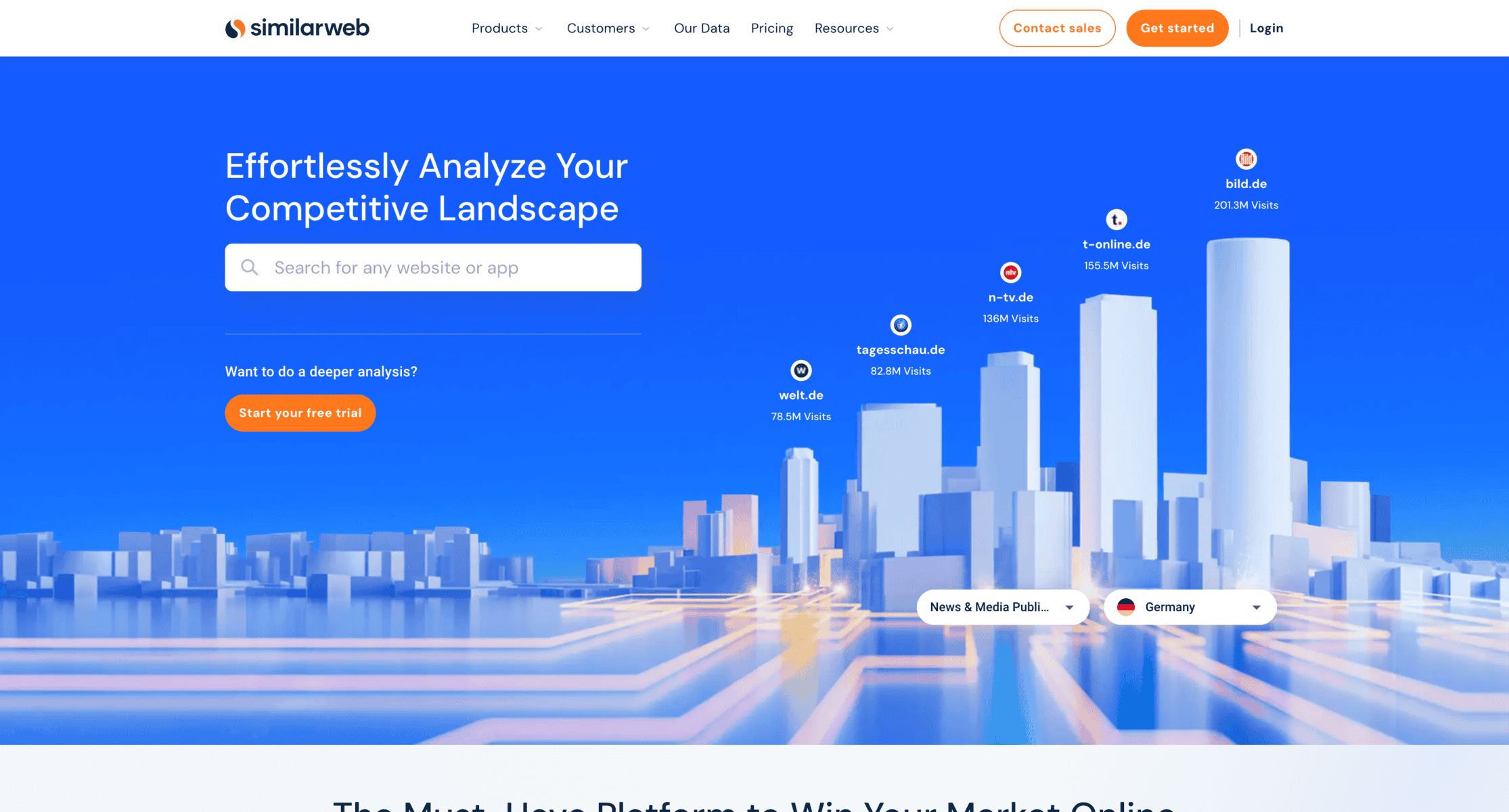
Similarweb is a competitive intelligence tool focused on analyzing website traffic and digital performance. It provides detailed insights into competitors’ traffic sources, audience demographics, and digital marketing strategies, making it valuable for businesses that want a clear view of how competitors attract and retain online visitors.
- Key Features:
- Website Traffic Analysis: Offers comprehensive data on competitor traffic sources, including direct, referral, social, and search traffic, providing a detailed look at audience acquisition.
- Audience Interests & Demographics: Breaks down competitor audience demographics, interests, and geographic locations, helping users understand who their competitors are reaching.
- Industry Benchmarks: Enables users to benchmark their website’s performance against industry standards, identifying areas for improvement.
- App and Keyword Insights: Delivers insights into mobile app usage and keyword rankings to refine mobile and search strategies.
- Pros: High level of detail in traffic and audience analysis, strong benchmarking features, and valuable insights into digital marketing.
- Cons: Higher pricing may be challenging for smaller businesses; lower-tier plans offer limited mobile data.
- Pricing: Starts at $125 per month (billed annually).
- Why Similarweb Stands Out: Similarweb’s in-depth traffic and audience analysis makes it ideal for digital marketing teams aiming to understand competitor engagement and expand their online reach effectively.
4. Crayon
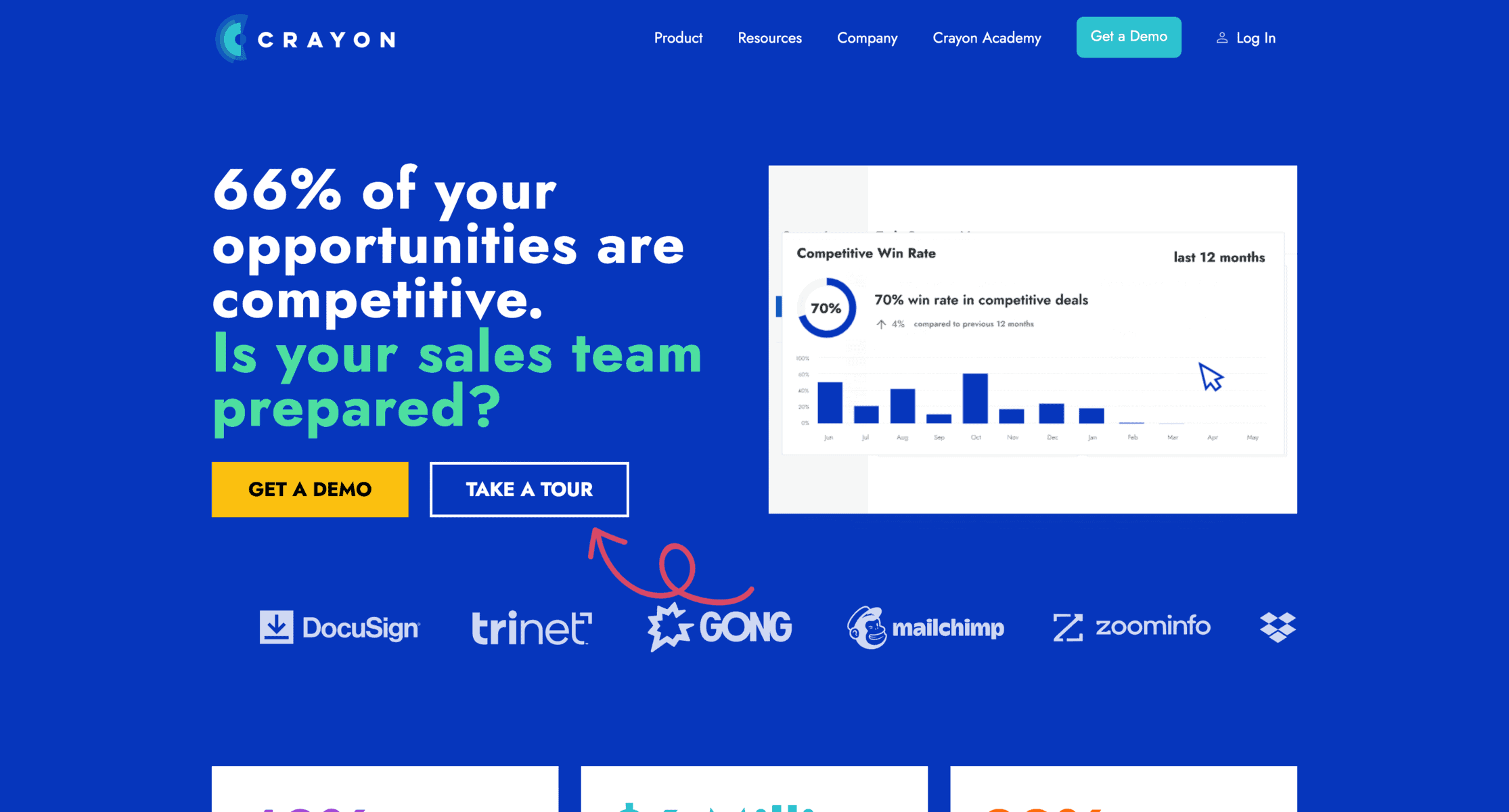
Crayon is a comprehensive competitive intelligence platform designed to track, analyze, and organize information about competitors in real time. This tool is particularly useful for sales and marketing teams who need detailed insights into competitor strategies to stay agile and make quick adjustments.
- Key Features:
- Competitor Tracking: Monitors competitors’ website updates, product launches, and changes in messaging, helping users stay informed about key moves.
- Customizable Dashboards: Allows users to build dashboards tailored to their needs, displaying only the most relevant competitor data.
- Real-Time Alerts: Sends notifications whenever a competitor makes a significant change, ensuring no important updates are missed.
- In-Depth Reporting: Provides detailed reports on competitor activity that can be easily shared across teams, supporting collaborative strategic planning.
- Pros: Highly customizable dashboards, detailed real-time tracking, and user-friendly reporting make Crayon an effective tool for cross-functional teams.
- Cons: The interface can be complex for beginners, and the higher price may be restrictive for smaller businesses.
- Pricing: Custom pricing based on business needs.
- Why Crayon Stands Out: Crayon offers deep market intelligence, real-time alerts, and customization options that make it a valuable tool for companies focused on competitive agility and team collaboration. Its features are ideal for businesses that need precise insights into competitor actions to make quick, informed decisions.
5. Owler
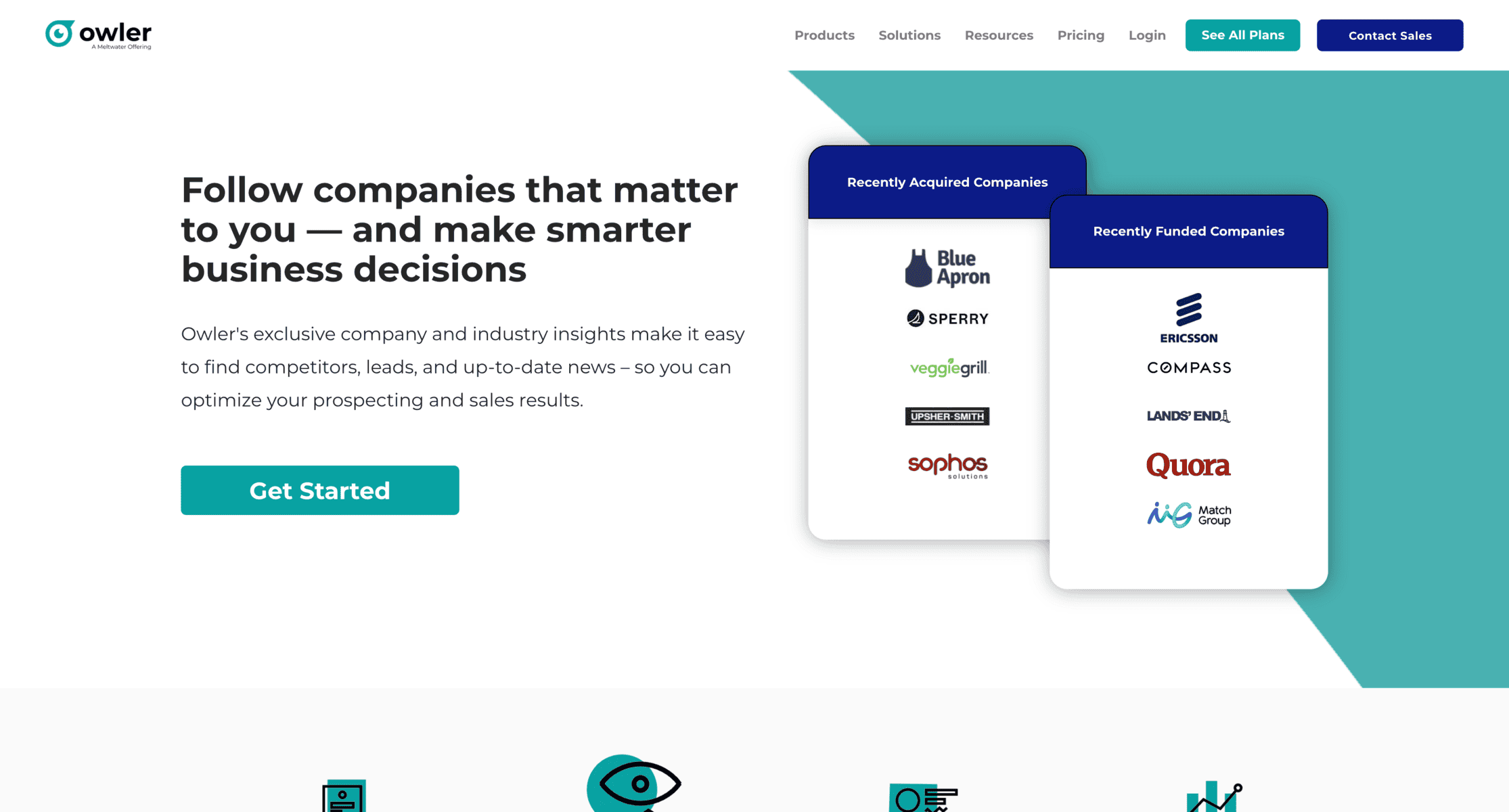
Owler is a competitive intelligence tool known for its crowd-sourced data and real-time updates. It’s a practical choice for businesses that want to stay updated on industry news, track competitor performance, and monitor key business events like funding rounds or executive changes.
- Key Features:
- Company Profiles & News Updates: Offers in-depth profiles for millions of companies, along with news updates on events like acquisitions, funding, and product launches.
- Customizable Alerts: Sends alerts for major competitor activities, including financial updates, leadership changes, and mergers.
- Community-Contributed Data: Leverages data from its large user base to provide insights on company performance and industry comparisons.
- Competitor Comparison Tool: Allows users to compare their business against competitors based on metrics like revenue, employee count, and industry rankings.
- Pros: User-friendly, provides unique crowd-sourced insights, and offers real-time alerts at an accessible price.
- Cons: Limited data depth on smaller companies; free plan offers only basic functionality.
- Pricing: Starts at $39 per month for Owler Pro.
- Why Owler Stands Out: Owler’s combination of real-time alerts and community-driven insights makes it a valuable tool for businesses seeking to monitor industry news and competitor actions without complex configurations. Its easy comparison tools also support quick and efficient performance benchmarking.
6. BuzzSumo
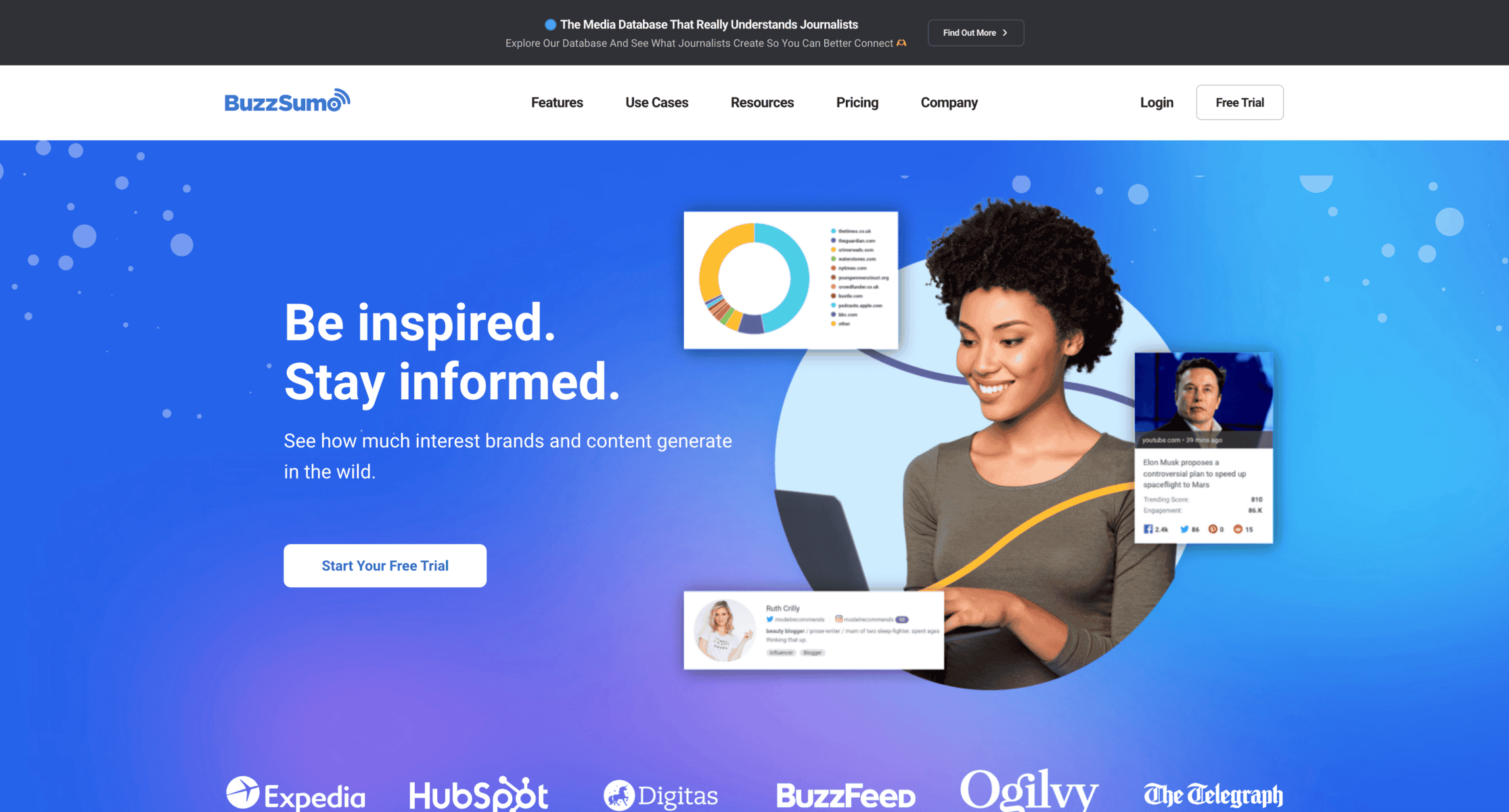
BuzzSumo is a popular tool for tracking social media engagement and content performance, making it particularly useful for competitive analysis in content marketing. By analyzing what content resonates most with audiences, businesses can gain insights into competitor strategies and trending topics across social platforms.
- Key Features:
- Content Discovery & Analysis: Allows users to find top-performing content based on keywords, topics, or domains, helping identify what resonates with audiences.
- Social Media Analytics: Tracks engagement metrics across platforms like Facebook, Twitter, and LinkedIn to understand how competitors’ content performs.
- Influencer Identification: Helps identify influential figures in specific industries or topics, enabling targeted outreach and collaboration opportunities.
- Competitor Content Alerts: Sends notifications when competitors publish new content, keeping users informed of real-time content strategies.
- Pros: Simple to use, excellent for content discovery, and provides powerful insights into social engagement.
- Cons: Limited functionality outside of content and social analysis; higher-tier pricing may be expensive for smaller businesses.
- Pricing: Starts at $159 per month (billed annually), with a 30-day free trial available.
- Why BuzzSumo Stands Out: BuzzSumo is ideal for businesses focused on content marketing and social media insights. Its data-driven approach to tracking trending content helps businesses refine their own content strategies and identify high-performing topics within their industry.
7. Talkwalker
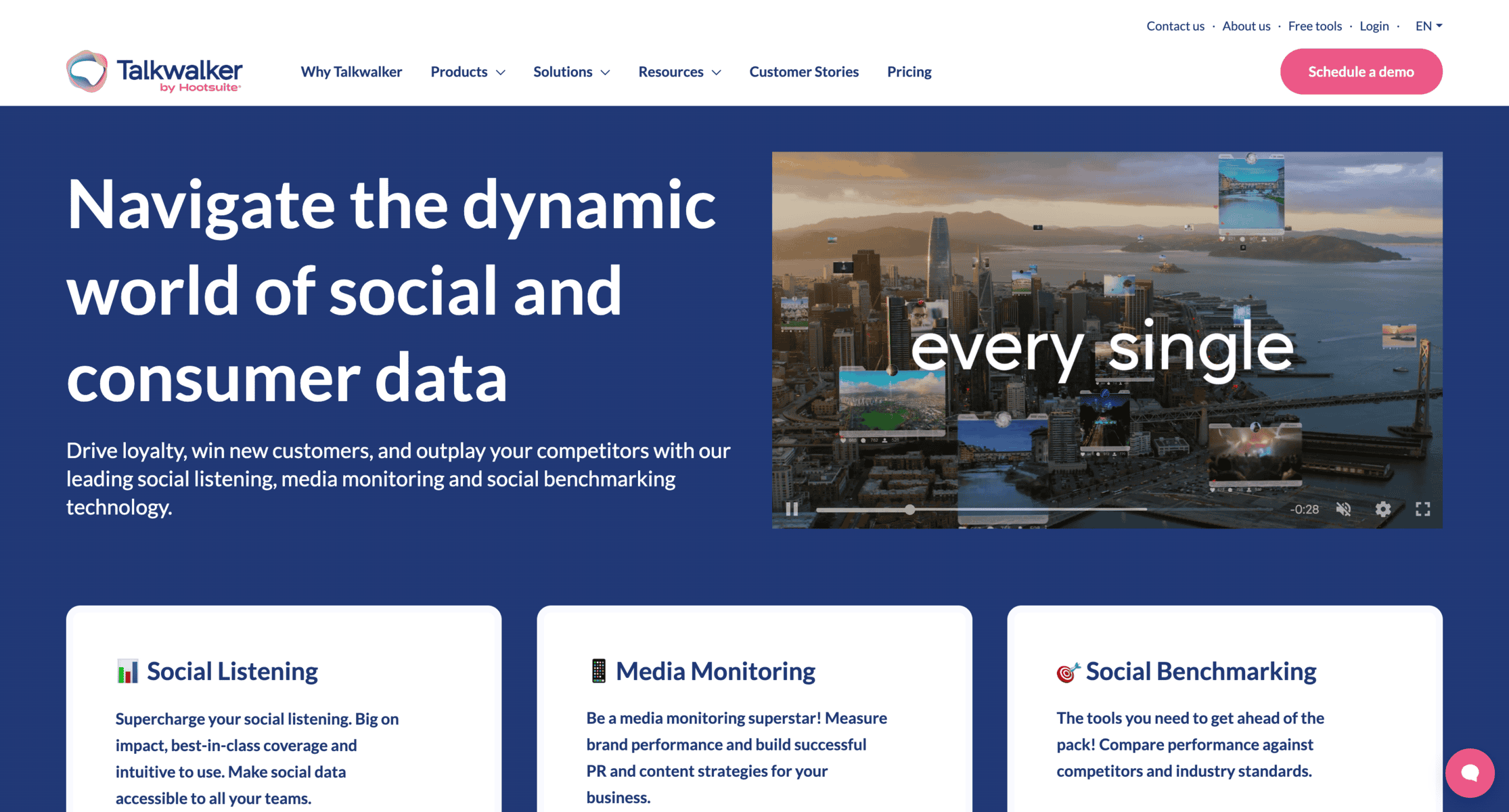
Talkwalker is a powerful social listening and analytics tool that enables businesses to monitor brand reputation, track customer sentiment, and analyze competitor activities across digital channels. It’s especially valuable for brands that want a comprehensive view of public perception and competitor performance on social media and beyond.
- Key Features:
- Social Listening & Sentiment Analysis: Tracks mentions of competitors, brand sentiment, and trending topics across social media platforms, blogs, forums, and news sites.
- Visual Analytics: Uses image recognition to identify brand logos and visual content, giving businesses insight into how their brand appears across digital platforms.
- Customizable Dashboards & Reporting: Offers easy-to-use dashboards that can be tailored to specific needs, along with in-depth reporting options.
- Crisis Management & Alerts: Provides real-time alerts for mentions or sentiment changes, helping businesses respond quickly to emerging issues or competitor actions.
- Pros: Comprehensive social listening capabilities, advanced sentiment analysis, and strong visual analytics.
- Cons: Higher pricing may be prohibitive for smaller businesses, and the interface can be complex for new users.
- Pricing: Custom pricing based on business needs; Talkwalker offers a range of plans with varying feature levels.
- Why Talkwalker Stands Out: Talkwalker excels at monitoring brand reputation and public sentiment, making it ideal for businesses that rely heavily on social media presence and customer feedback. Its ability to track both text and visual content sets it apart as a unique tool for deep social analysis
8. SpyFu
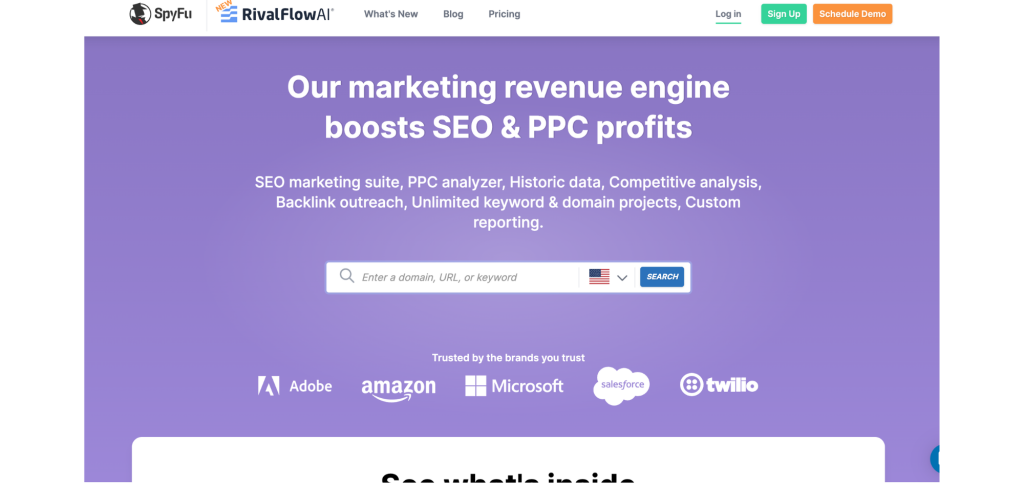
SpyFu is a competitive intelligence tool specializing in SEO and paid search insights, designed to help businesses improve their search rankings and understand competitors’ keyword strategies. It’s ideal for companies focused on enhancing their search engine visibility and optimizing PPC campaigns.
- Key Features:
- Keyword Research & Competitor Analysis: Provides detailed keyword analysis, showing which keywords competitors are targeting and ranking for.
- PPC Ad Research: Tracks competitors’ Google Ads history, including ad copy, keywords, and estimated budget, to reveal successful ad strategies.
- Backlink Analysis: Identifies the backlink profiles of competitors, helping businesses discover link-building opportunities.
- SERP Tracking: Monitors search engine ranking positions over time, allowing users to track their performance and adjust strategies.
- Pros: Excellent for SEO and PPC insights, easy-to-navigate interface, and a cost-effective option for keyword and ad research.
- Cons: Limited functionality outside of SEO and PPC; some data may be less detailed than what is offered by larger platforms like SEMRush.
- Pricing: Starts at $39 per month, with multiple plans available based on data needs.
- Why SpyFu Stands Out: SpyFu is an accessible and effective tool for businesses that need a deep understanding of competitors’ search and ad strategies. Its focus on keyword and PPC insights makes it a go-to for companies looking to boost their SEO and improve ad performance on a budget.
9. Contify
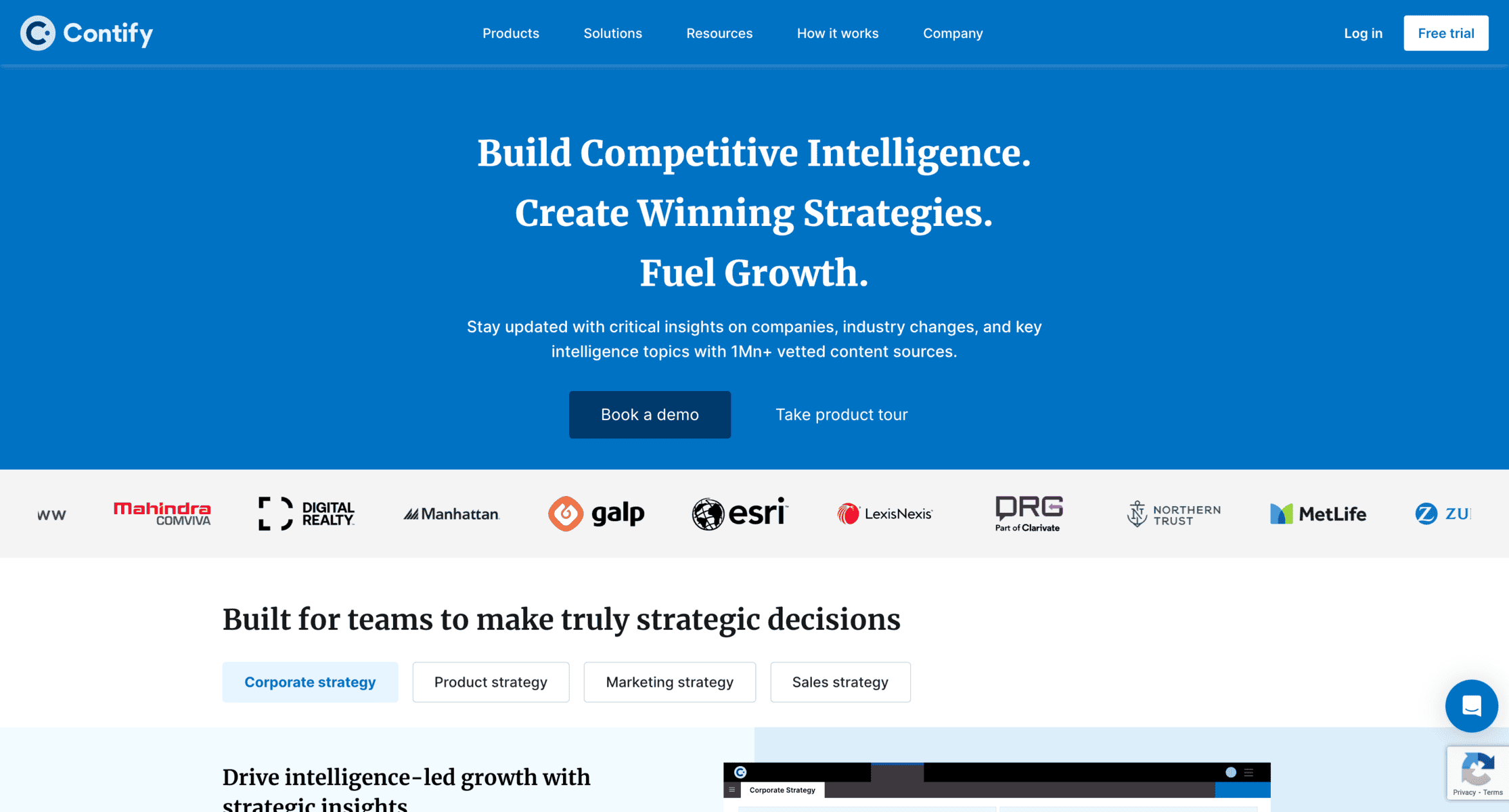
Contify is an AI-powered competitive intelligence platform tailored for businesses that need a continuous flow of market and competitor information. It aggregates data from various sources, offering insights into competitor activities, industry trends, and customer sentiment, making it especially useful for large teams that require comprehensive, real-time information.
- Key Features:
- Competitive Tracking & News Alerts: Monitors competitor actions across web articles, blogs, regulatory filings, and social media, delivering real-time updates.
- Customizable Dashboards & Alerts: Provides dashboards that can be customized for specific teams or departments, along with alerts for any critical updates.
- AI-Powered Insights: Uses artificial intelligence to filter, organize, and summarize data, making it easier to extract actionable insights.
- Industry-Specific Analysis: Allows users to set up industry-focused monitoring, giving businesses insights tailored to their specific sector.
- Pros: Customizable alerts, in-depth tracking across multiple data sources, and AI-driven insights make Contify a strong choice for large organizations.
- Cons: The platform may be too complex or costly for smaller businesses that don’t need enterprise-level capabilities.
- Pricing: Custom pricing based on business needs and required features.
- Why Contify Stands Out: Contify’s AI-powered insights and industry-focused monitoring make it a top choice for companies that need a constant flow of reliable competitive intelligence. Its customization options allow businesses to adapt the platform to suit their specific needs, providing targeted insights for different teams.
10. Klue
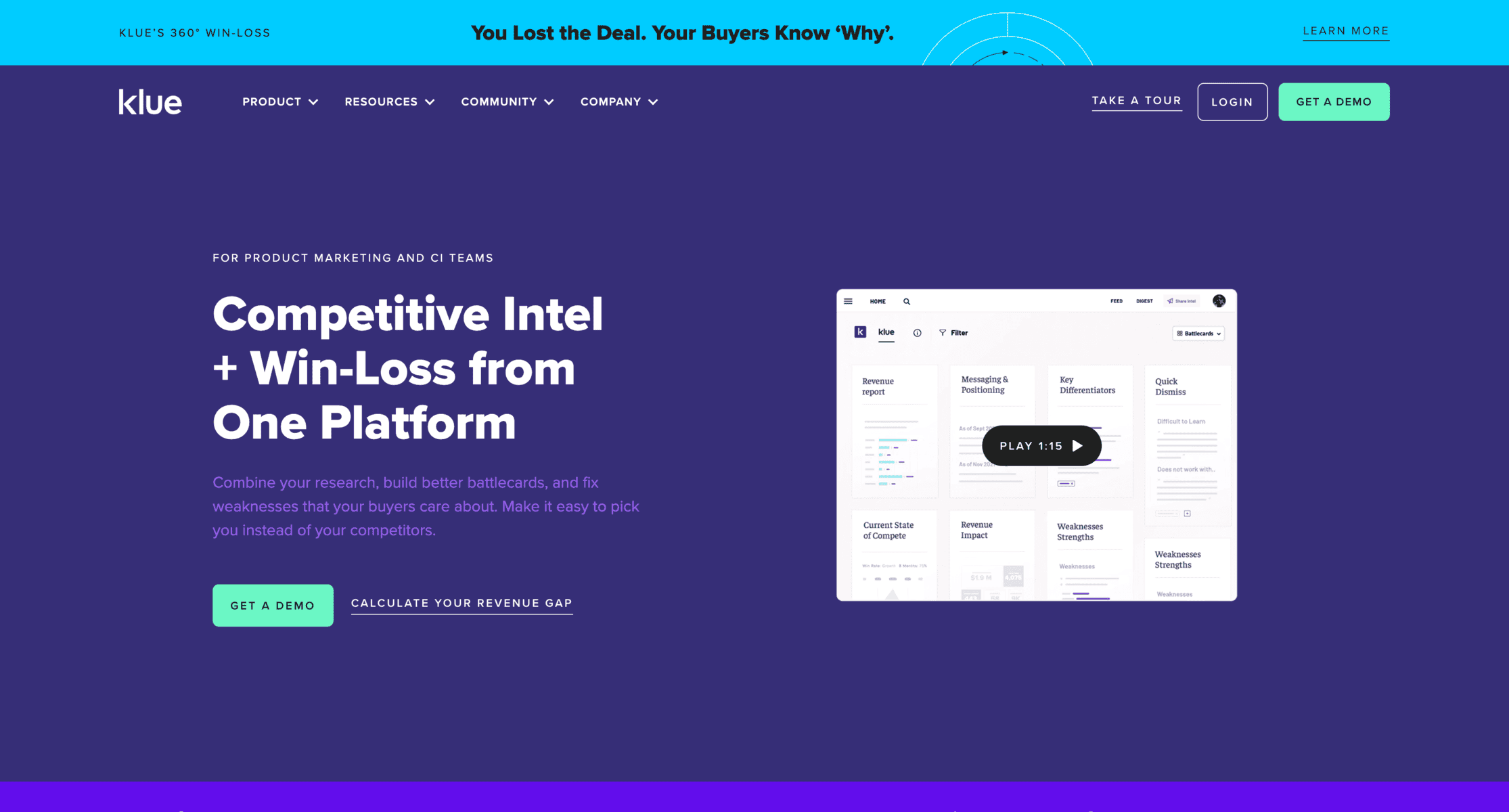
Klue is a competitive intelligence platform built to help sales and marketing teams gather and organize competitor information. It centralizes competitor insights and makes them easily accessible, making it especially useful for sales enablement.
- Key Features:
- Competitive Battlecards: Provides quick-reference battlecards for sales teams to use during pitches, highlighting competitor strengths and weaknesses.
- Real-Time Updates: Continuously updates with new information on competitors, ensuring teams have the latest insights.
- Content Curation: Gathers competitor data from public sources, internal notes, and sales feedback, creating a comprehensive view.
- Collaboration Tools: Allows teams to collaborate on insights, add comments, and share information easily across departments.
- Pros: Highly effective for sales enablement, user-friendly interface, and real-time updates.
- Cons: Limited analytics capabilities outside of competitive insights; may not be ideal for teams needing deep market analysis.
- Pricing: Custom pricing based on team size and features.
- Why Klue Stands Out: Klue is an ideal solution for sales teams that need easy access to competitor insights. Its focus on sales enablement makes it especially valuable for businesses aiming to empower their sales reps with real-time, actionable data.
11. AlphaSense
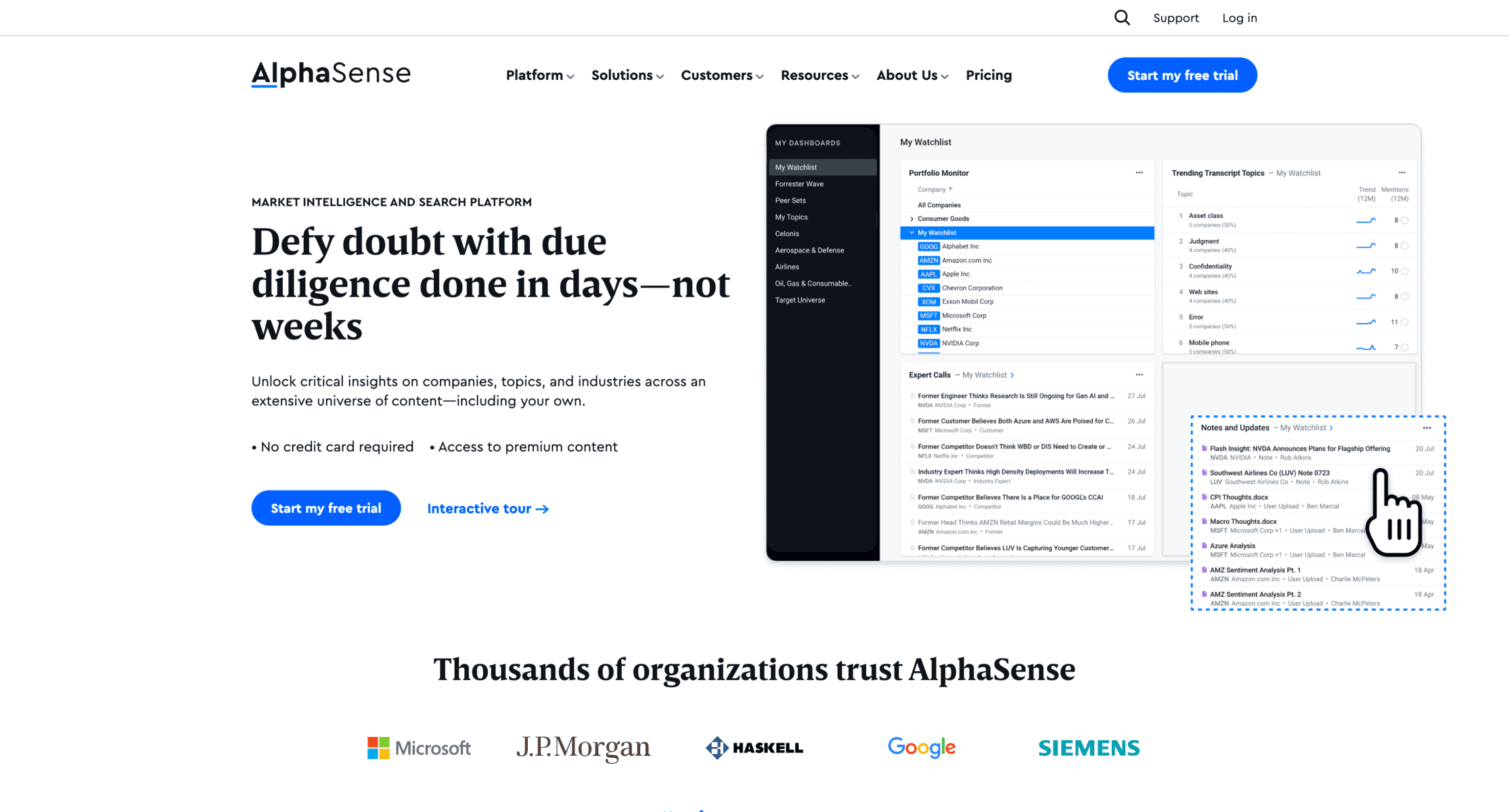
AlphaSense is a market intelligence and search platform designed to help businesses gather insights from financial and market data. It’s widely used by analysts, researchers, and finance teams who need to monitor industry trends, competitor news, and financial reports.
- Key Features:
- Advanced Search Capabilities: Uses AI-driven search to extract information from millions of documents, including financial reports, news articles, and SEC filings.
- Real-Time Market Monitoring: Provides instant alerts and updates on competitor actions, market changes, and economic trends.
- Sentiment Analysis: Analyzes tone and sentiment in reports and news to provide a deeper understanding of market perception.
- Collaboration Tools: Allows teams to share insights and discuss findings within the platform, supporting cross-functional collaboration.
- Pros: Excellent for financial and market analysis, powerful AI-driven search, and comprehensive document coverage.
- Cons: Higher cost may be prohibitive for smaller teams; focused mainly on finance and market analysis.
- Pricing: Custom pricing based on user needs and data access requirements.
- Why AlphaSense Stands Out: AlphaSense is a premium choice for businesses that need to dive deep into market trends and financial data. Its AI-powered search capabilities make it highly effective for gathering precise information from a vast range of sources, making it ideal for finance teams and market analysts.
12. Glassdoor (for Employee Sentiment Analysis)
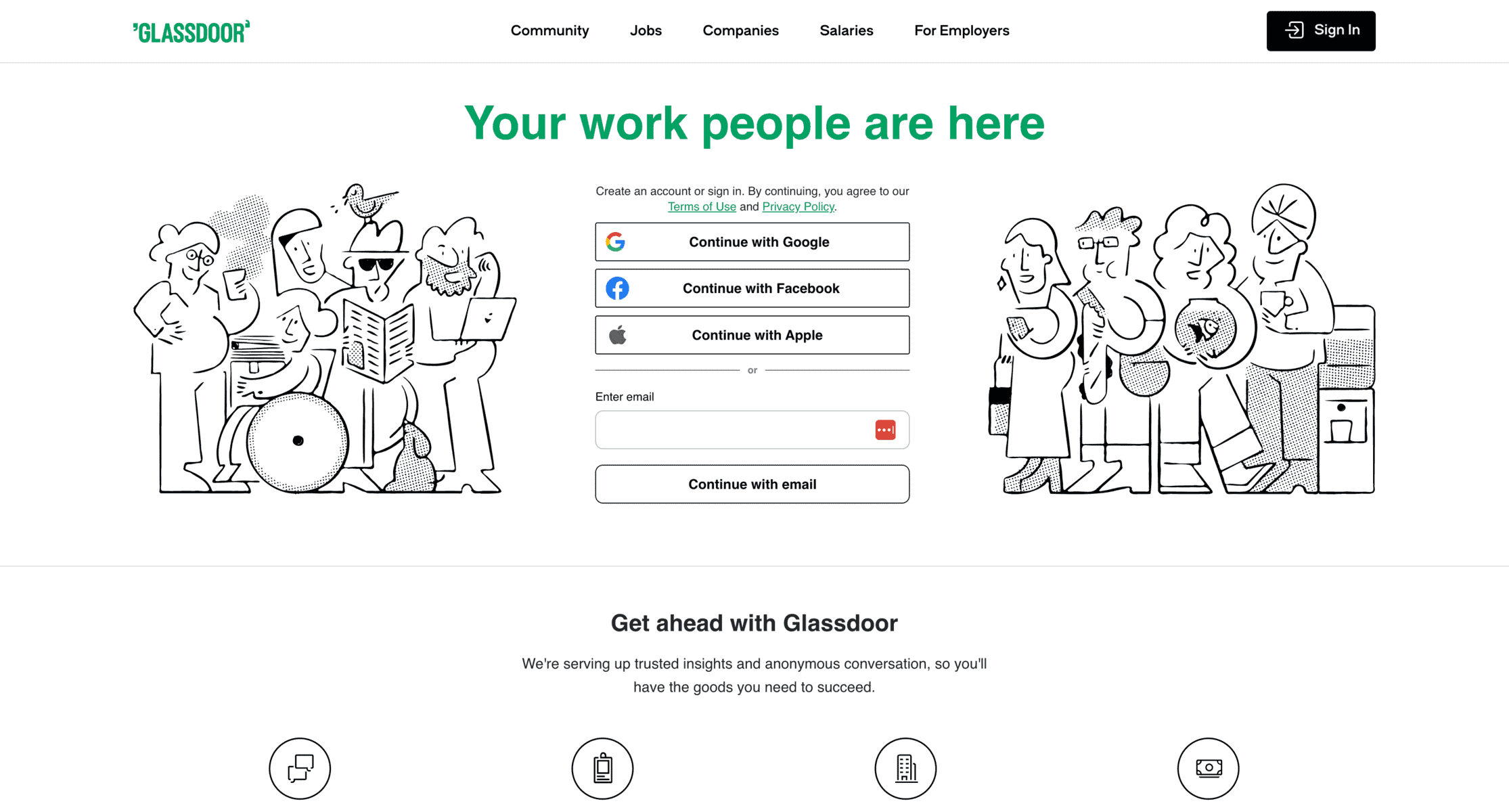
Glassdoor is a well-known platform that provides insights into employee sentiment, workplace culture, and company reputation. Although it’s primarily a job review site, businesses can use Glassdoor as a competitive intelligence tool to understand how employees view their competitors. This insight is valuable for companies aiming to improve their brand perception and retain talent.
- Key Features:
- Employee Reviews: Provides access to detailed reviews from current and former employees, offering insights into competitor workplace culture, management style, and employee satisfaction.
- Salary and Benefits Data: Shows average salaries, benefits, and compensation trends for various roles, enabling companies to benchmark their own offerings against competitors.
- CEO Approval Ratings: Displays CEO ratings and feedback, which can reflect overall employee satisfaction and leadership perception.
- Interview Insights: Includes information on interview experiences, common questions, and the hiring process, offering a view into competitors’ recruitment strategies.
- Pros: Easy access to employee sentiment and culture insights, salary benchmarks, and unique data on workplace perception.
- Cons: Limited scope outside of employee sentiment analysis; not suitable for broader competitive intelligence needs.
- Pricing: Free access for basic data; premium access through Glassdoor for Employers varies based on business needs.
- Why Glassdoor Stands Out: Glassdoor provides unique insights into the internal workings of competitors from an employee perspective. This tool is especially useful for HR teams and business leaders aiming to enhance their own workplace culture and better understand employee sentiment across the industry.
Essential Features to Look for in a Competitive Intelligence Tool
When choosing a competitive intelligence tool, certain features can make a big difference in how useful the tool is for your business. Here are the essential features to look for:
Comprehensive Data Collection and Analysis
A strong competitive intelligence tool should gather data from a variety of sources, including websites, social media, news, blogs, and more. This variety ensures that you get a complete view of competitor actions, market trends, and customer sentiment. Comprehensive data collection enables deeper insights and helps businesses make more informed decisions.
User-Friendly Dashboards and Visualizations
User-friendly dashboards and visualizations are crucial for presenting data in an easily understandable format. These features allow users to see key insights at a glance without getting overwhelmed by raw data. Clear and customizable visualizations can help teams analyze trends quickly and make better strategic decisions.
Customizable Alerts and Notifications
Real-time alerts and notifications allow businesses to stay updated on competitor actions, industry news, and market shifts as they happen. Look for tools that let you customize alerts based on specific actions, keywords, or competitors, so you only get notified about changes that are relevant to your goals. This feature can save time and ensure that you respond swiftly to important updates.
Real-Time Data Monitoring
Real-time monitoring is essential for companies that want to stay agile. The ability to track competitor actions, SEO changes, ad spending, and customer sentiment in real time gives businesses a competitive edge. This feature helps marketing and sales teams respond quickly to shifts in the market and adjust their strategies accordingly.
Integration Capabilities with Other Platforms
A competitive intelligence tool that integrates well with other platforms, such as CRM, project management, or social media management tools, can help streamline workflows. Integration allows teams to connect data across systems, improving collaboration and making it easier to act on insights within other tools they already use.
Cost-Effectiveness and Scalability for Growing Teams
Cost is an important factor, especially for small and mid-sized businesses. Look for a tool that offers flexible pricing and can scale as your team or business grows. This ensures that you’re getting a solution that fits your budget now and can still meet your needs as your company expands.
How to Use Competitive Intelligence Tools Effectively
Using competitive intelligence tools effectively involves more than just monitoring competitors; it requires a strategic approach to gather, analyze, and act on data. Here’s how to make the most of these tools:
Setting Clear Objectives
Before diving into any competitive intelligence platform, it’s crucial to set clear objectives. Decide what you want to achieve, whether it’s identifying market gaps, tracking competitor campaigns, or understanding customer sentiment. Setting specific goals will help you configure the tool to gather the most relevant data and generate insights that directly impact your business.
Configuring Alerts and Custom Dashboards
Most competitive intelligence tools offer customizable alerts and dashboards. Set up real-time alerts to track key competitor actions, such as changes in social media activity, ad campaigns, or website updates. Custom dashboards allow you to display only the most relevant data for your team, making it easier to spot trends and emerging opportunities. This setup enables you to stay informed without being overwhelmed by unnecessary information.
Integrating Competitive Intelligence Tools with Marketing Platforms
To maximize the value of your competitive intelligence tool, integrate it with other marketing platforms you already use, such as CRM, social media management tools, or project management software. This integration streamlines workflows, making it easier to transfer data across systems and implement insights directly into your marketing efforts. For example, insights gained from competitor social media analysis can be fed into your own content planning to improve engagement.
Utilizing Data to Refine Business and Marketing Strategies
Finally, use the insights gathered from competitive intelligence tools to continuously refine your business and marketing strategies. Regularly analyze data on competitor trends, customer preferences, and market shifts to adapt your approach. This data-driven strategy will help you stay agile, improve your marketing reporting accuracy, and make better-informed decisions that strengthen your market position.
What to Consider When Choosing a Competitive Intelligence Tool
Selecting the right competitive intelligence tool depends on your business needs, goals, and resources. Here are key factors to consider when evaluating options:
Data Depth and Relevancy
Look for a tool that provides in-depth, relevant data on competitors, industry trends, and customer sentiment. The quality and scope of data directly affect the insights you can gain. For example, if you need social media analytics, ensure the tool can track various platforms and offer engagement metrics. Choose a tool that aligns with the type of intelligence most valuable to your business.
Ease of Use and User Interface
An intuitive user interface is essential for maximizing productivity, especially if multiple team members will use the tool. A well-designed, user-friendly interface reduces the learning curve and makes it easier to extract insights. Before committing, try a demo or free trial to evaluate how easy it is to navigate and whether the tool fits your team’s workflow.
Compatibility with Existing Systems
Make sure the competitive intelligence tool integrates smoothly with your existing software stack, such as CRM, project management, and marketing automation tools. Good integration capabilities allow data to flow seamlessly between platforms, enabling more efficient workflows and collaboration across teams.
Customization Options and Real-Time Updates
Customizable features, like dashboards and alerts, can make a tool more adaptable to your specific needs. Real-time updates are also critical for businesses that need to act quickly on competitor moves. Check that the tool offers real-time alerts and allows you to set up notifications for specific competitor activities, ensuring you’re always informed.
Cost and ROI Potential
Competitive intelligence tools come in a range of price points, so it’s important to choose one that fits your budget while delivering a high return on investment. Consider the tool’s features, scalability, and potential impact on your business outcomes. Investing in a tool that provides valuable, actionable insights can pay off in stronger marketing reporting, better-informed decisions, and improved market positioning.
How Competitive Intelligence Tools Help in Specific Business Scenarios
Competitive intelligence tools offer valuable support across various business scenarios. Here are some specific ways these tools can drive better results:
-
Launching New Products or Entering New Markets
When launching a new product or expanding into a new market, competitive intelligence tools can help identify market demand, customer preferences, and existing competitors. By analyzing competitor products, pricing, and marketing strategies, businesses can determine where gaps exist and position their offerings more effectively. CI tools also provide insights into the types of promotions or content that resonate with target audiences, helping to shape product launch strategies.
-
Responding to Competitor Price Changes
Pricing strategy is a critical component of staying competitive. CI tools monitor competitor pricing in real time, allowing businesses to respond to changes that could impact their market share. For example, if a competitor reduces prices or launches a discount campaign, CI tools alert businesses, enabling them to adjust their own pricing or promotions to retain customers. This proactive approach helps companies maintain a competitive edge and meet customer expectations on value.
-
Tracking Customer Perception and Adjusting Brand Messaging
Customer sentiment and brand perception are essential to building a positive reputation. Competitive intelligence tools help monitor how customers perceive competitors’ brands, products, and services across social media, reviews, and forums. By understanding what customers like or dislike about competitors, businesses can adjust their own messaging to better appeal to the market. This feedback loop supports stronger, data-informed brand positioning.
-
Enhancing Customer Retention with Competitive Offer Insights
Customer retention often depends on understanding and matching the value offered by competitors. CI tools track competitors’ loyalty programs, customer service initiatives, and promotional offers, allowing businesses to implement or adjust similar strategies. By keeping track of what competitors offer to retain customers, businesses can craft their own initiatives to improve loyalty and retention, reducing the risk of losing customers to competitors.
Frequently Asked Questions About Competitive Intelligence Tools
What is the purpose of a competitive intelligence tool?
A competitive intelligence tool helps businesses gather, analyze, and interpret data about competitors, market trends, and customer sentiment. The goal is to provide insights that support strategic decision-making, improve marketing reporting, and give businesses a competitive advantage. These tools automate data collection and analysis, allowing companies to track competitor moves, identify market gaps, and stay informed on industry shifts.
How do these tools differ from general analytics tools?
Competitive intelligence tools are specifically designed to monitor and analyze competitors and market trends, while general analytics tools focus on tracking a company’s own performance metrics (such as website traffic or social media engagement). CI tools collect data on competitor activities, such as pricing changes, content updates, and ad campaigns, providing a broader view of the external landscape that general analytics tools do not typically cover.
Can small businesses benefit from competitive intelligence?
Yes, competitive intelligence tools can be valuable for small businesses, helping them identify opportunities and stay competitive. Many CI tools offer flexible pricing or free trials, making them accessible to smaller teams. By understanding competitor strategies and customer preferences, small businesses can refine their own marketing efforts, optimize pricing, and improve customer retention, all of which contribute to growth.
What’s the best tool for social media competitive analysis?
BuzzSumo and Sprout Social are popular choices for social media competitive analysis. BuzzSumo is excellent for tracking the performance of competitor content and identifying trending topics, while Sprout Social provides social listening, engagement metrics, and sentiment analysis. Both tools help businesses understand what resonates with audiences on social platforms, making it easier to refine their own social media strategies.
How frequently should businesses use competitive intelligence insights?
Businesses should use competitive intelligence insights regularly, especially in fast-paced industries where competitor actions and market trends change frequently. Daily or weekly monitoring is ideal for real-time adjustments, while monthly or quarterly reviews are useful for long-term strategy updates. The frequency depends on the specific industry and business needs, but regular analysis ensures that companies stay informed and can react to changes promptly.
Why is Competitors App the recommended choice for marketers?
Competitors App is particularly recommended for marketers due to its real-time tracking capabilities and customizable alerts. It provides a holistic view of competitors’ online activities, including social media updates, SEO changes, and content strategies. This tool is cost-effective and easy to use, making it a valuable resource for marketing teams that need quick, actionable insights to stay competitive and enhance their marketing reporting.
